
NVIDIA’s Deep Learning Institute
“IBL was a game-changer for me. Working with the team was easier than working with any engineering team I’ve ever had to deal with. We hit all of our deadlines on time and they were more than eager to help out with things not directly in our agreement. I would recommend them to anyone.”
.png)
Sales and Revenue Generation via Massive Audiences.
Explore the monetization models for deploying online institutes with IBL Education and Open edX.

Audience of 600k+ Developers

Instructor-Led and Self-Paced Courses

Specialized GPU Labs and Certifications
Meet NVIDIA.
NVIDIA has risen since 1999 as a superpower in the field of visual computing with their invention of the GPU (graphics processing unit).
Today, GPUs are a physical necessity for machine learning — a rapidly growing subset of artificial intelligence and computer science. NVIDIA has led the way as the largest manufacturer of GPUs, with breakthroughs in parallel processing, making supercomputing inexpensive and widely accessible.
Today, GPUs are a physical necessity for machine learning — a rapidly growing subset of artificial intelligence and computer science. NVIDIA has led the way as the largest manufacturer of GPUs, with breakthroughs in parallel processing, making supercomputing inexpensive and widely accessible.
The Challenge.
The backbone of NVIDIA is building the hardware that allows for deep learning to exist, and NVIDIA was in the market for a learning ecosystem for their Deep Learning Institute (DLI) to spread deep learning training.
The DLI aims to educate its over 600k developers, data scientists and researchers with an accessible learning ecosystem under its full control. In addition to their educational motives, NVIDIA wanted to produce a marketable learning platform that would encourage investment into their hardware.
The DLI aims to educate its over 600k developers, data scientists and researchers with an accessible learning ecosystem under its full control. In addition to their educational motives, NVIDIA wanted to produce a marketable learning platform that would encourage investment into their hardware.
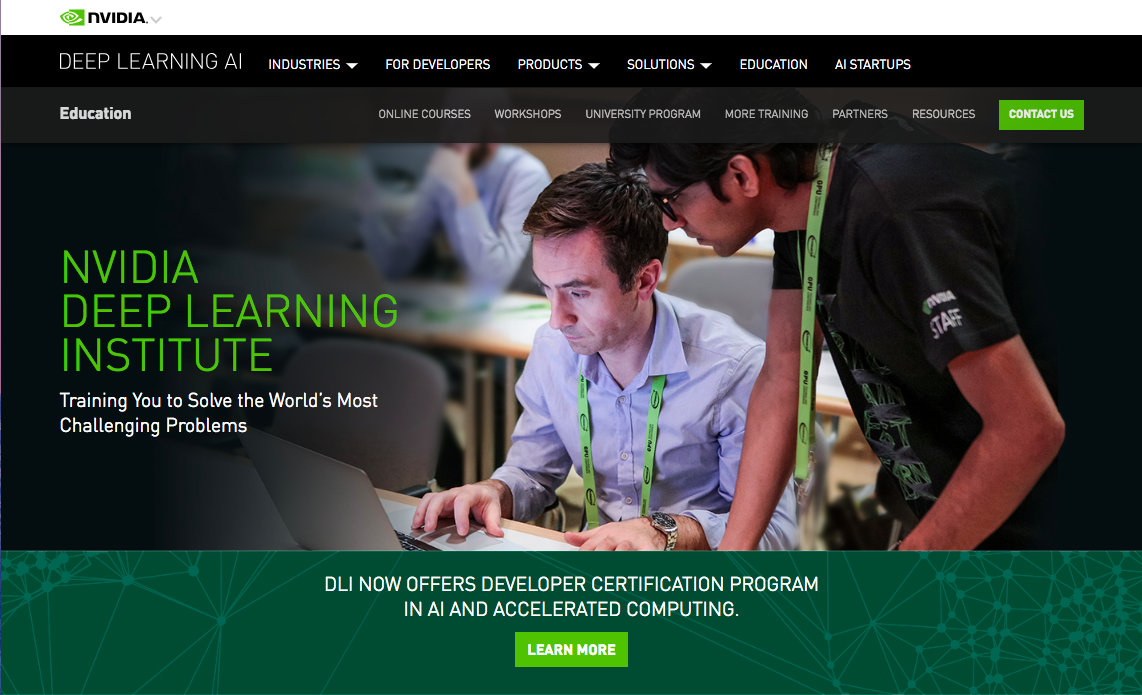
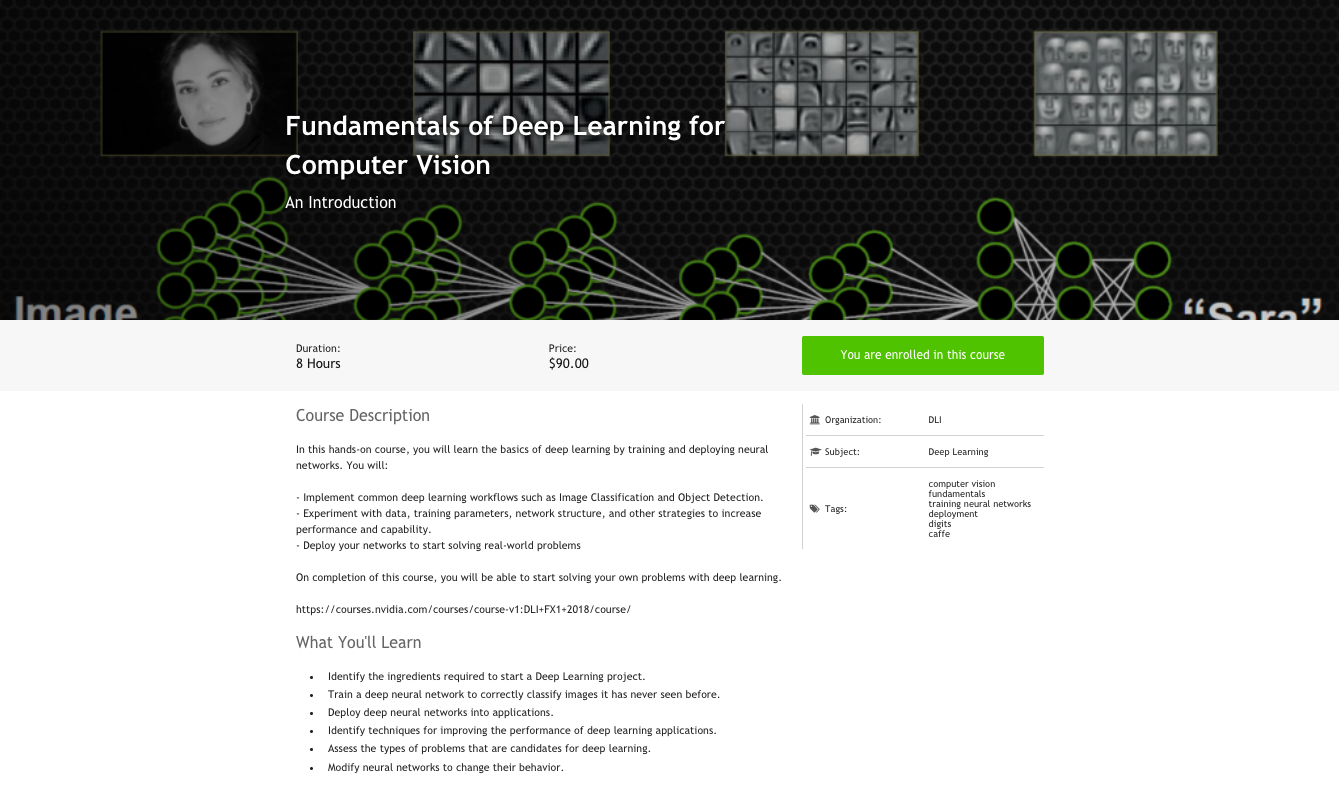
The Solution.
NVIDIA partnered with IBL Education to deploy a deeply-integrated, distributed and built-to-scale Open edX ecosystem for their DLI in order to train developers and data scientists in deep learning.
Open edX is the open source learning platform created by MIT and Harvard, and is scalable, well-tested and fully featured in terms of its web application, iOS and Android platforms, and learning analytics.
Open edX is the open source learning platform created by MIT and Harvard, and is scalable, well-tested and fully featured in terms of its web application, iOS and Android platforms, and learning analytics.
The Results.
NVIDIA’s ecosystem was launched in March 2018 at the GPU Technology Conference (GTC) in California where two courses were offered: Fundamentals of Deep Learning for Computer Vision, and Fundamentals of Accelerated Computing with CUDA C/C++.
Since the launch, NVIDIA now offers tens of courses and is on its way to reaching the first 100K students by the end of this year. In addition, they’ve offered in-person sessions with thousands of students.
Since the launch, NVIDIA now offers tens of courses and is on its way to reaching the first 100K students by the end of this year. In addition, they’ve offered in-person sessions with thousands of students.
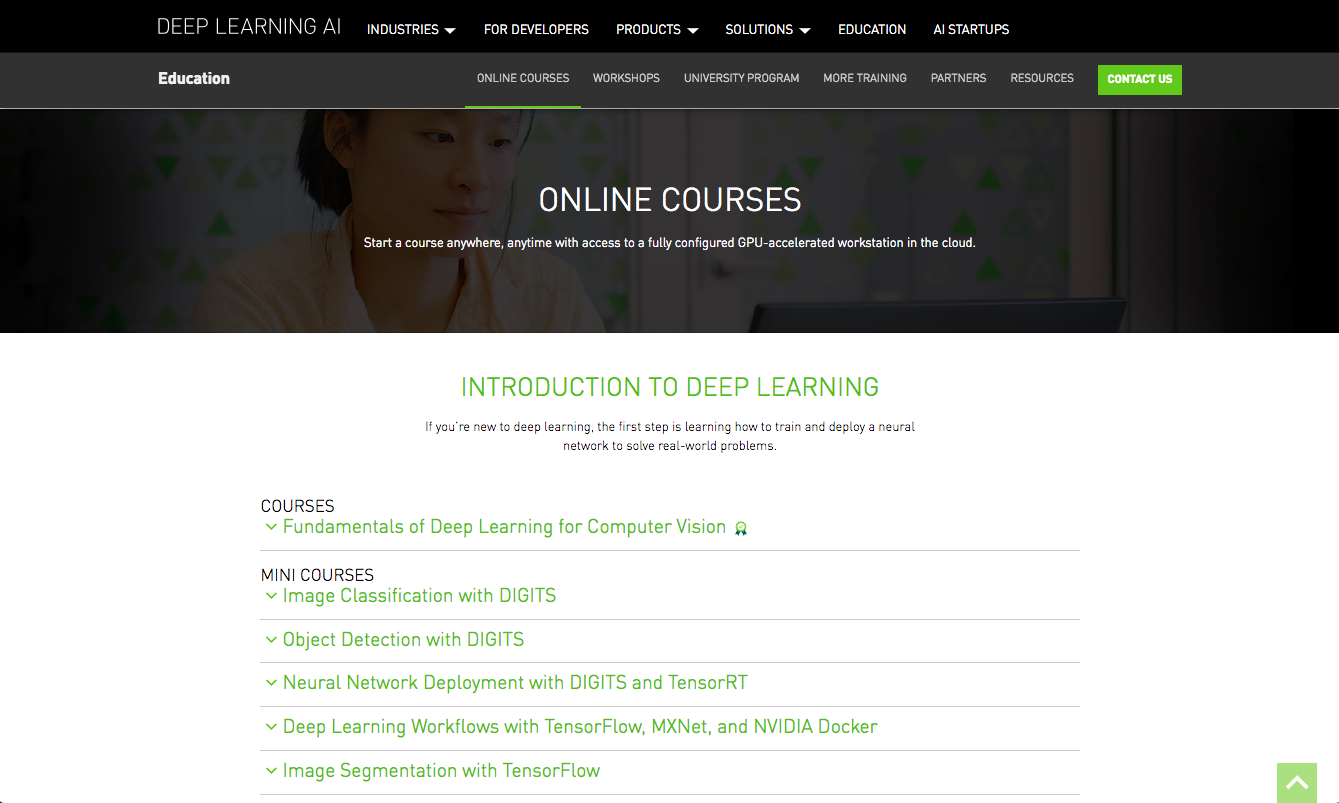

The NVIDIA Deep Learning Institute’s mission is to educate deep learning engineers at scale, and most importantly, to certify them. Learners who take part in the courses offered in the DLI are issued certifications and microcredentials. These badges and certificates allow learners to demonstrate their knowledge of specific skills and competencies gained in deep learning.

By partnering with IBL Education and creating a personalized Open edX ecosystem, they now own their platform and are in full control of their content. Open edX platforms are tried and true, with over 55M learners and integrated education at scale. In terms of cost, it is negligible in comparison to a standard learning platform.

Another noteworthy concern for any large-scale online learning ecosystem is the requirement of concurrent users — NVIDIA’s ecosystem requiring thousands, which was only made possible due to the Open edX architecture it is fundamentally built on. Moving forward, NVIDIA will be able to modify their learning ecosystem to adjust their learning strategies because their ecosystem is completely under their control.

The George Washington University
“I’ve been working with IBL for four years now and they’ve been the greatest partners to try innovation with digital technologies in education. I’ve had the opportunity to recommend IBL to other people trying to do exciting projects with education. I will recommend them again because our projects are always on time, they’re always what we expect them to be, and they are a pleasure to work with as well.”
.png)
Blended Learning for University Degrees.
Explore the blended learning technique that GWU offers its students, spearheaded by Professor Lorena Barba

Expanded to 10k+ Users

Jupyter Notebook Integration

Engaging Blended Capabilities
Meet GWU.
GWU is praised as one of the best universities in the U.S. Lorena A. Barba, a Professor of Mechanical and Aerospace Engineering at GWU, is an advocate of open source education initiatives, and deployed the first Open edX course offering outside of edX and Stanford University.
The Challenge.
As an immense supporter of open source education, Barba aimed to expand her “Practical Numerical Methods with Python” course on a global scale, utilizing Open edX. Barba has been working with Jupyter, a set of open source tools for interactive and exploratory computing.
At the center of these is the Jupyter Notebook, a document format for writing narratives that interleave multi-media content with executable code, using any of a set of available languages (of which Python is the most popular).
At the center of these is the Jupyter Notebook, a document format for writing narratives that interleave multi-media content with executable code, using any of a set of available languages (of which Python is the most popular).
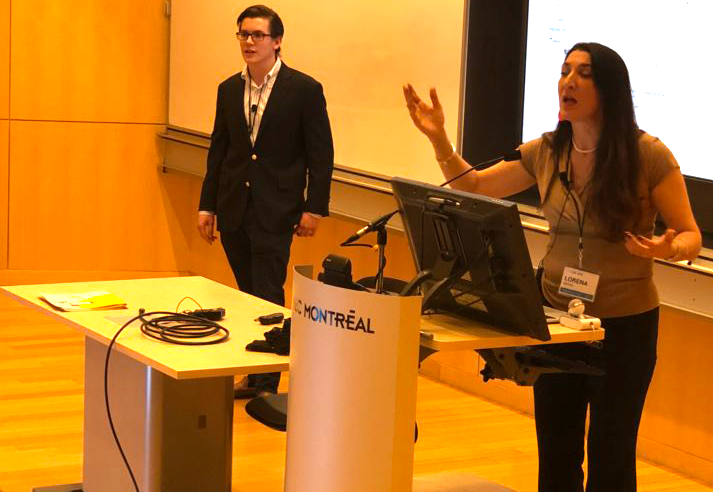
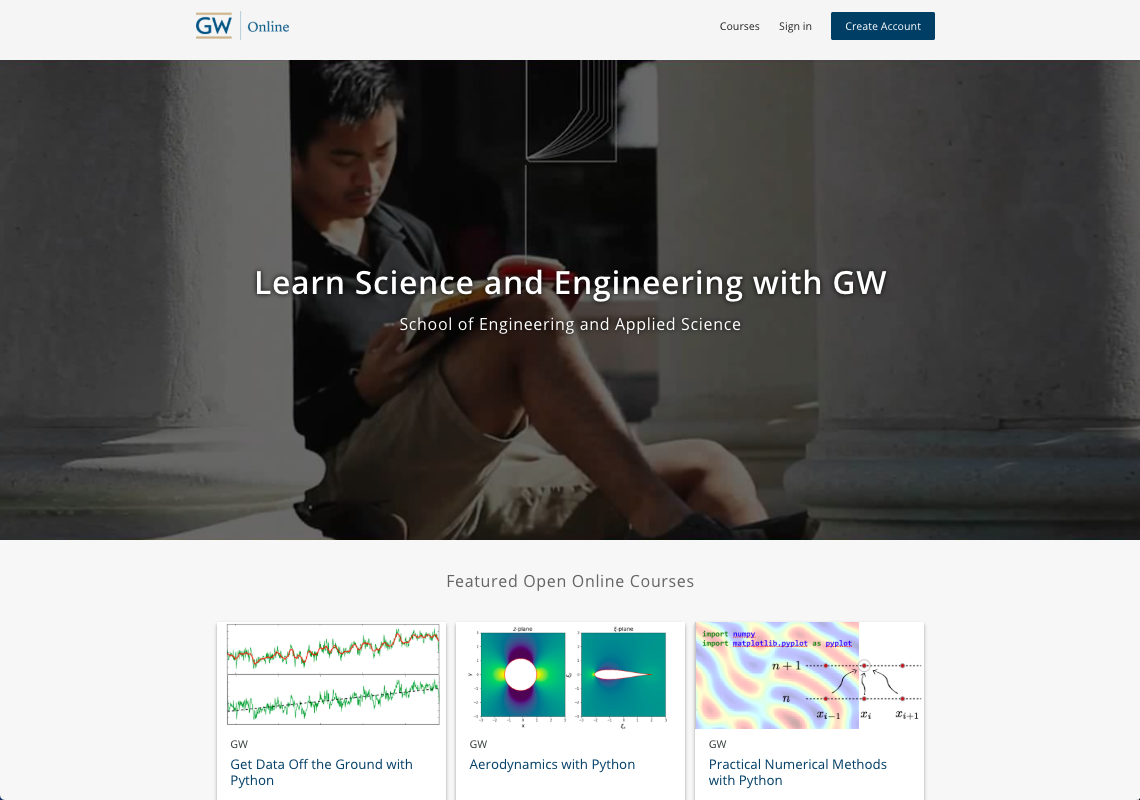
The Solution.
Partnering with IBL Education, Barba’s course was released on the GWU Online learning ecosystem. Professor Barba and Miguel Amigot II, CTO of IBL Education, presented their integration of Jupyter to the Open edX platform at the Open edX Conference.
Two new edX extensions (xBlocks) were presented:one for pulling content into a course from any public Jupyter notebook (from its URL), and the other to integrate auto-graded assignments based on Jupyter notebooks, and the nbgrader Jupyter extension.
Two new edX extensions (xBlocks) were presented:one for pulling content into a course from any public Jupyter notebook (from its URL), and the other to integrate auto-graded assignments based on Jupyter notebooks, and the nbgrader Jupyter extension.
The Results.
Barba’s course has been exceptionally successful and utilized as a blended technique in her own classrooms at GWU. Her new course instance has amassed over 10k users.
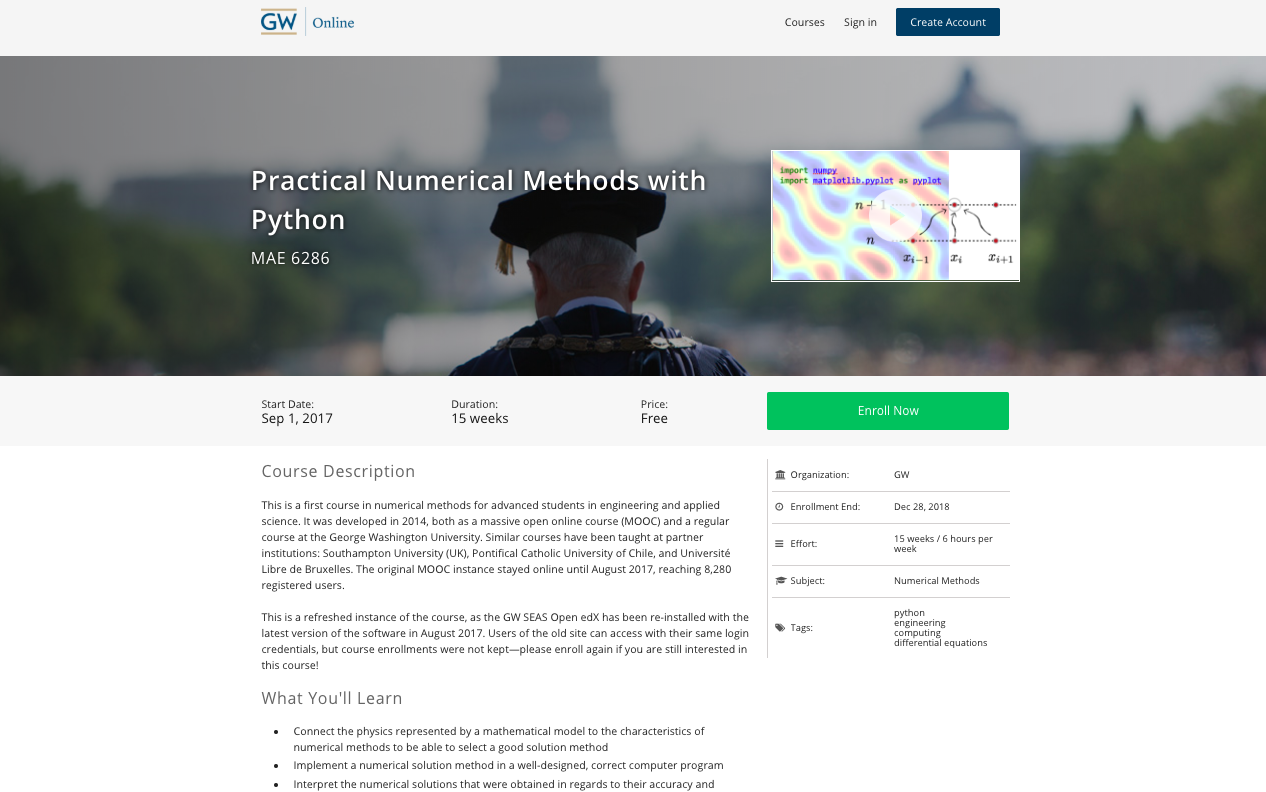

One of the factors in choosing an Open edX learning ecosystem to host her courses was the significant reduction in cost compared to pricing models for a license on a standard learning platform.

By partnering with IBL Education and creating a personalized Open edX ecosystem, GWU owns their own platform and is in full control of their content.

Open edX platforms are tried and true, with over 26M learners and integrated education at scale. In terms of cost, it is negligible in comparison to a standard learning platform (less than 10%).



.png)





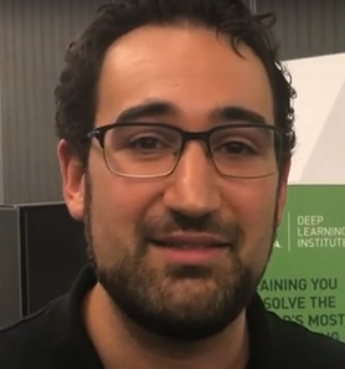




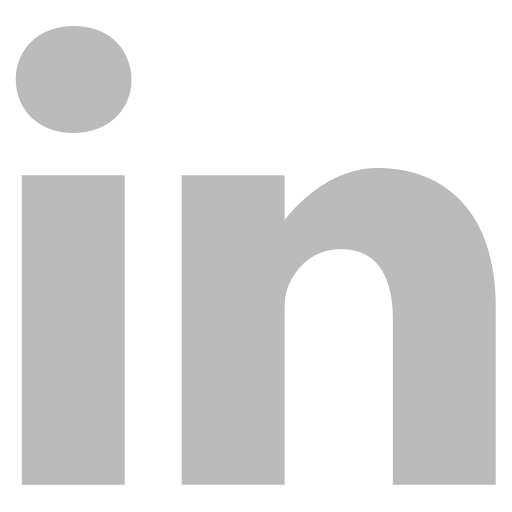
.png)
